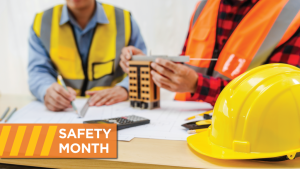The implementation of new regulations that require British Columbia’s crane operators to pass safety exams is moving forward as planned, despite some media reports that certification would be delayed due to the overwhelming number of applications.
Vancouver
The implementation of new regulations that require British Columbia’s crane operators to pass safety exams is moving forward as planned, despite some media reports that certification would be delayed due to the overwhelming number of applications.
WorkSafeBC plans to require all operators of boom, tower and mobile cranes to pass a mandatory written and hands-on exam by July 2008.
A report by the CBC on mandatory certification requirements for crane operators in B.C. have been postponed because there are too many operators who need to take the course.
But Fraser Cocks, executive director of the B.C. Association for Crane Safety, the organization responsible for the certification program, said his comments to the CBC were misinterpreted and it was not his intention to give the impression that the program was being delayed.
“It’s just a matter of re-evaluating and looking at what our needs are. This is not a matter of stopping, delaying or cancelling the program. It’s a matter of getting on with it and getting it done,” Cocks said.
“The next step is to communicate to the operators what the standards are, so they can adequately prepare for the exam.”
The number of crane operators who registered for certification is more than double initial estimates.
“Nobody knew how many crane operators were out there. We have registered and identified over 10,000 crane operators,” Cocks said.
“We now know who they are, where they are and what type of crane they are operating. Now we have the information we require to do this. Before, it was anybody’s guess.”
Currently, tower crane operators in B.C. are not required to have any formal training or experience.
However, crane operators and owners need to be aware that since July 1, 2007, mobile cranes, tower cranes or boom-trucks must be operated only by a person with a valid operator’s certificate.
To be in compliance, crane operators must be in possession of a document issued by the B.C. Association for Crane Safety, which indicates the operator is either fully certified or is registered for assessment.
“Operators, who learn how to use the load chart, won’t make marginal lifts that may tip the crane over. They will also practice better pre-lift planning,” Nelson said.
According to WorkSafeBC data, there were 43 tower crane accidents in the province between 2004 and 2006, but not every incident is reported.










Recent Comments
comments for this post are closed